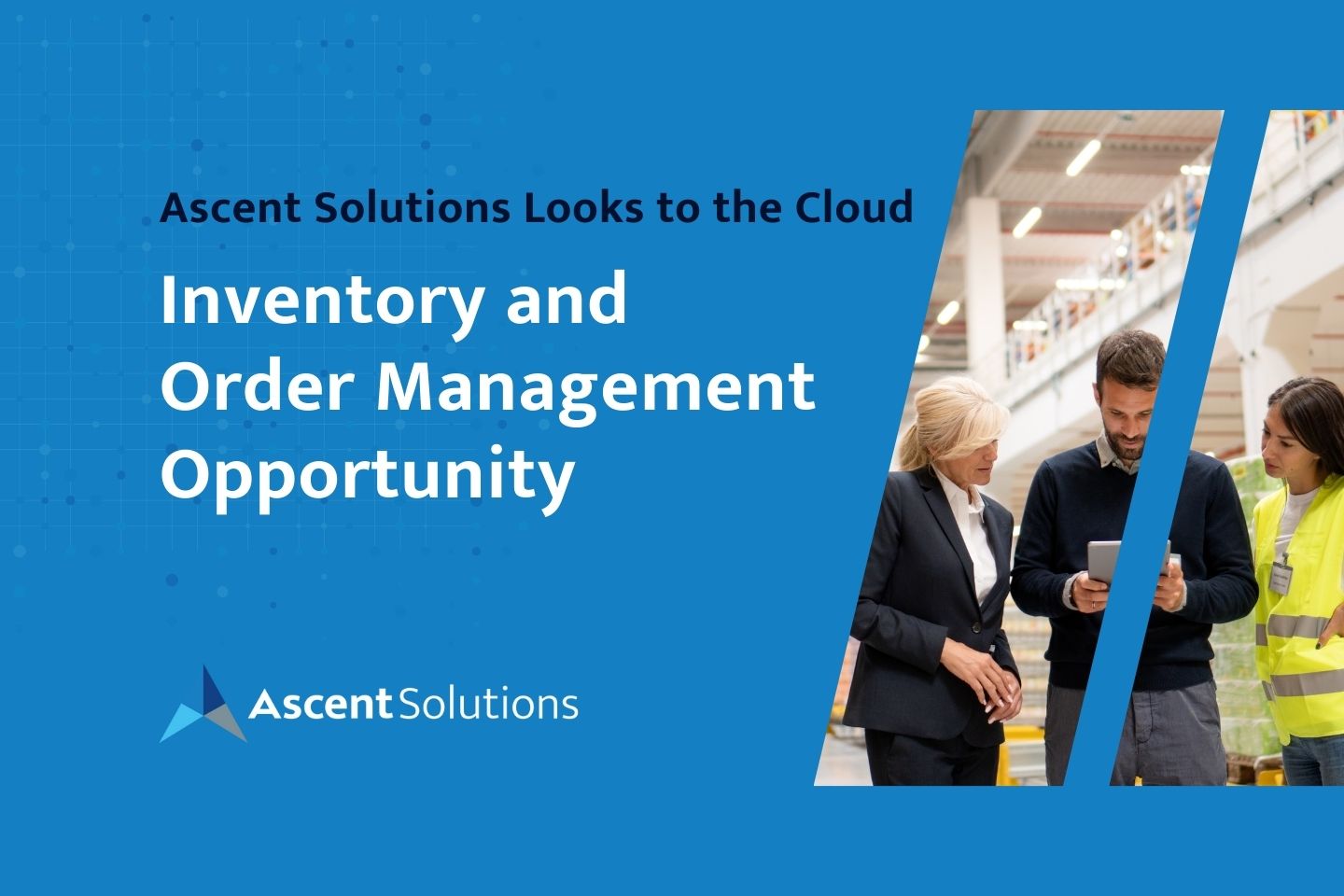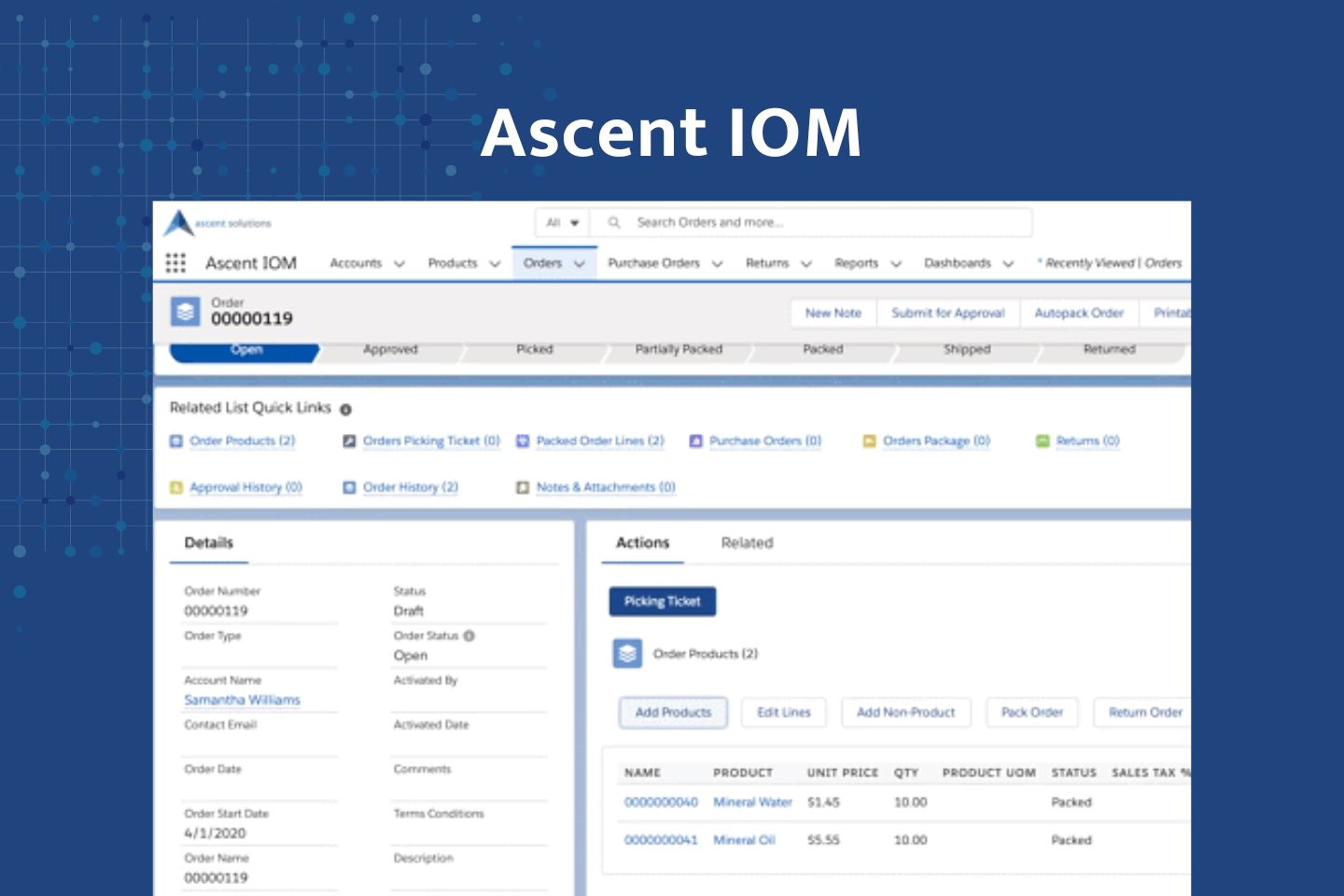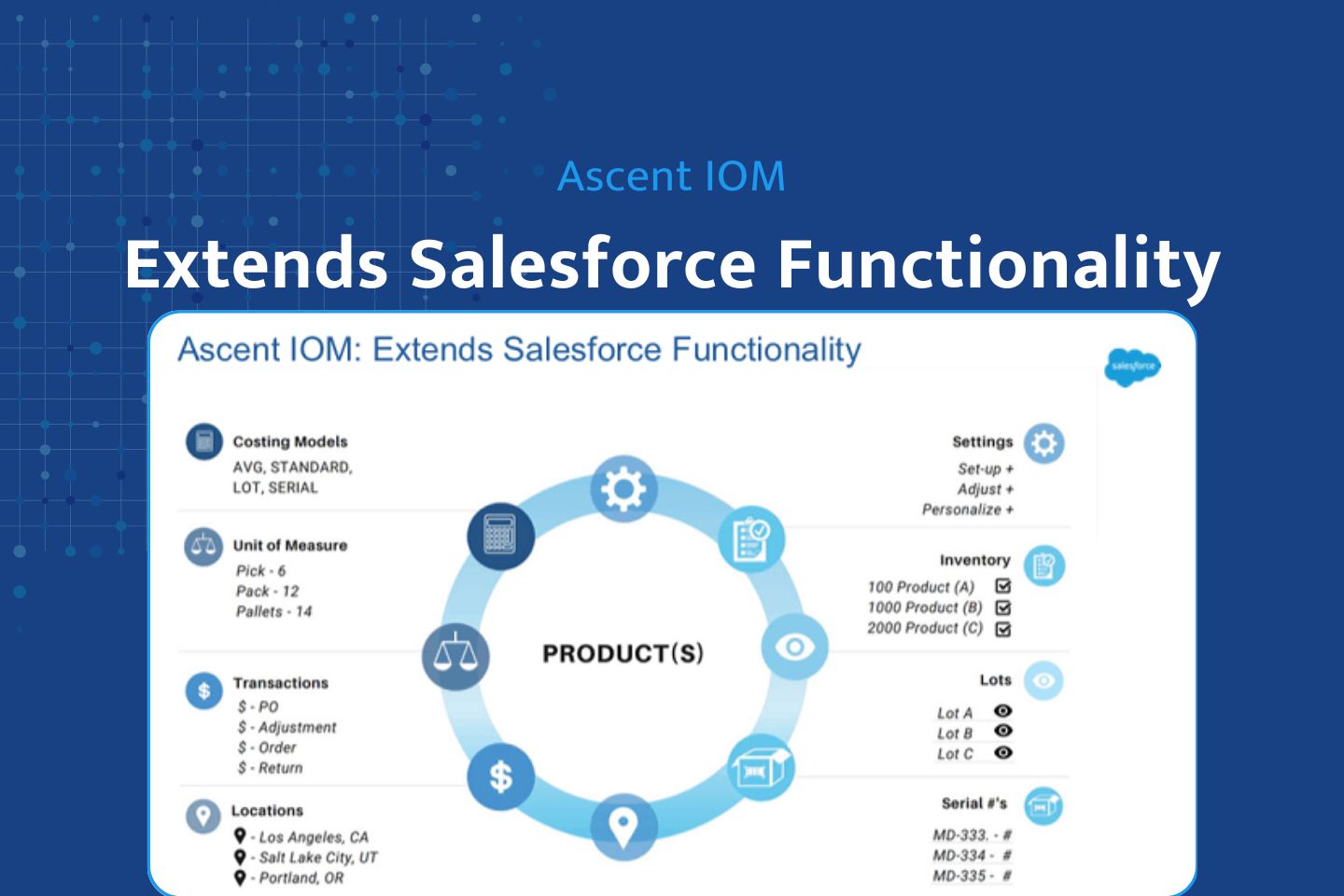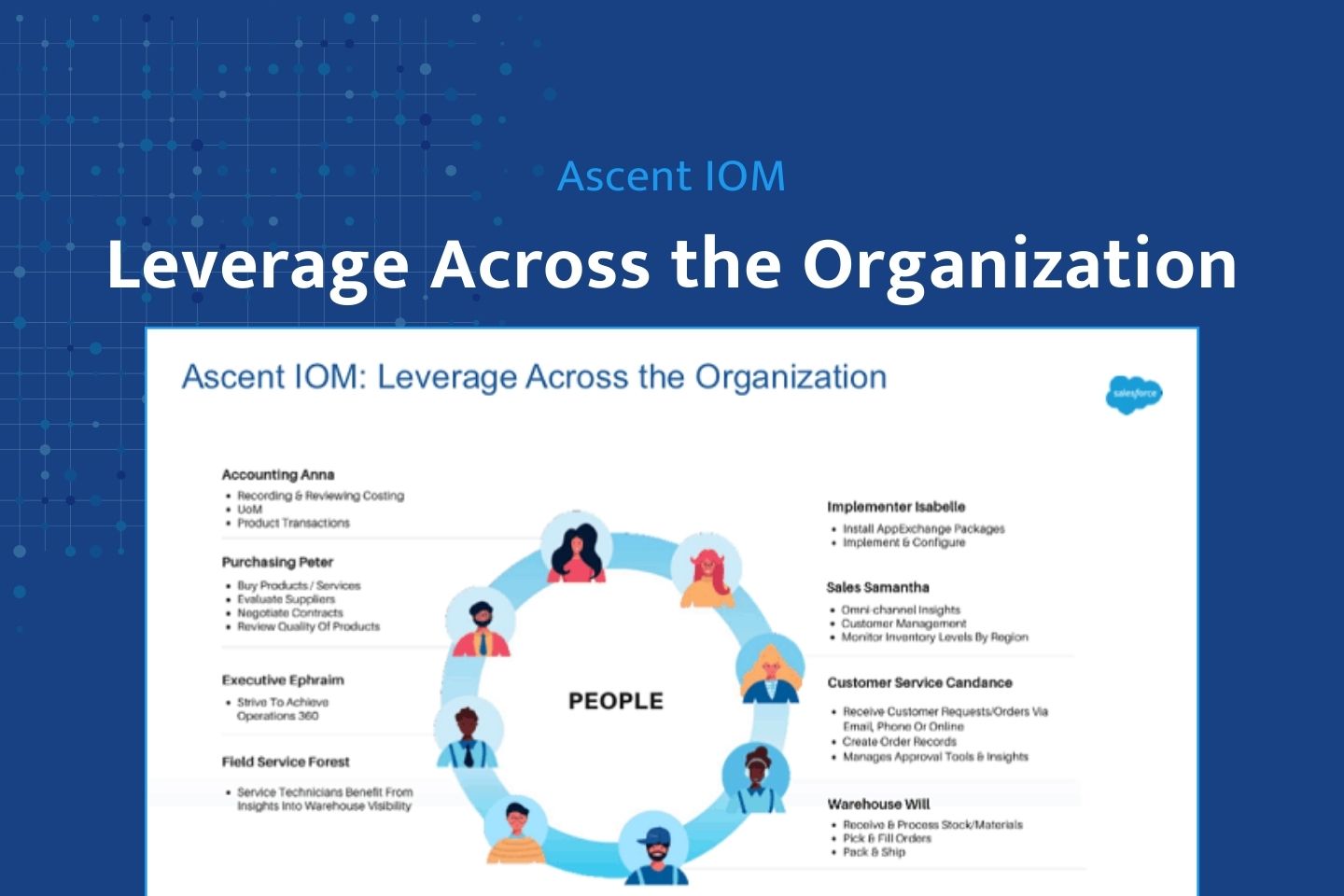Ascent Solutions Looks to the Cloud – Inventory and Order Management Opportunity
View All: Resources

Written By: PJ Jakovljevic
Several years ago, we met with executives from Ascent Solutions (owned by Precisio Business Solutions, based in Somerville, NJ) at a Dreamforce user conference by Salesforce. The cloud enterprise resource planning (ERP) software provider on the Salesforce Platform was founded by seasoned manufacturing and distribution business owners to improve inefficiencies at kindred companies.
The company has lately rebranded as Ascent Solutions, with Ascent ERP being the current name of a major product line. Ascent ERP breaks down business silos and helps increase the value of internal and external communication. In addition to the core ERP software capabilities, the vendor offers some extension solutions on Salesforce’s AppExchange marketplace, under the Ascent brand, such as rental management and labeling, for example. You can learn more about Ascent here.
Where Ascent Solutions Is at Today
Currently, Ascent’s employees, along with several partners, are working on the sales and implementation side. The company’s major offices are in New Jersey, Pennsylvania, and Atlanta. Its major system integration (SI) partners are Coastal Cloud, World-Class Industrial Network, Aethon, Coacto, FullCRM, and Plumlogix.
The vendor’s ideal customer profiles seem to be startups, growth businesses, and established small to midsize businesses (SMBs) with up to $100 million in revenue, and between 15 and 2,000 employees. Those companies tend to spend on 10 or more Salesforce customer relationship management (CRM) software user licenses annually, the Enterprise Edition, or the highest Ultimate Edition.
Given that Ascent ERP currently supports only English, its geographic focus remains on North America and the UK. Moreover, given that the product does not cover financials and accounting, it has built an integration platform that currently works with Accounting Seed, Quickbooks Online/On premise, and Xero. The vendor’s typical competitors are Rootstock, Oracle NetSuite, Accounting Seed, Fishbowl, Oracle Supply Chain, Oracle JD Edwards, Blue Yonder (formerly JDA), Microsoft Dynamics, and SAP Business One.
As for vertical segments and industries with a business-to-business (B2B) commerce focus, Ascent ERP’s customers tend to come from manufacturers of hardware, consumer goods, medical devices, cannabusiness, and other manufacturers and distributors—often ones with strong needs for product traceability. As a matter of interest, one client is an athletic apparel company that has recently launched an online workout system to encourage athletes to stay in shape during the COVID-19 lockdown.
All too often, AscentERP’s prospects will use some complementary and even competing solutions such as the aforementioned ones. The complementary solutions from Salesforce include Service Cloud, B2B Commerce, Configure, Price, Quote (CPQ), Manufacturing Cloud, and Field Service Lightning (FSL).
Ascent ERP sees opportunity among startups as well as growing and midsize businesses due the nature of these companies. Most startups quickly outgrow their existing IT wares, such as pesky spreadsheets and rigid legacy systems. They tend to suffer from poor visibility given that their data is fragmented and siloed rather than being standardized on a single platform, such as the Salesforce Platform. As a result, they could miss out on significant revenue opportunities due to the lack of deep and holistic omnichannel insights.
Enter Ascent IOM
To address those issues and achieve the coveted “Operations 360” nirvana with astute inventory and order management, the vendor has been working on the upcoming new offering—Ascent IOM. The IOM abbreviation stands for “Inventory and Order Management.” This product is currently undergoing a security review, with an expected general availability (GA) date in a matter of weeks. Still, Ascent has gotten a lot of interest from both prospects and existing Ascent ERP customers, and product demos/videos are already available.
Ascent IOM is all about omnichannel distributed order management (DOM), similar to Manhattan Associates, IBM Sterling, Aptos, NetSuite Order Management, Softeon DOM, and other solutions. Ascent IM and OM are standalone products, but installing them together enables more intelligence using the unified Ascent data model, seamless customer experience (CX) for inventory, orders, and returns, as well as more data integrity without requiring painful integrations.
Some Early Success Stories for Ascent Solutions
Flow Water Inc. is an early adopter of the solution was Flow Water Inc. The company is in the business of the production, distribution, marketing, and sale of packaged natural spring water from Virginia, USA and Ontario, Canada. Flow Water, a high-growth business, wanted a flexible and scalable solution to more efficiently manage its complex operation on a single platform with minimal integration overhead.
To that end, Ascent’s middle- and back-office solutions have delivered a single source of truth, providing inventory, procurement, production, orders, and fulfillment management. The team also implemented Financialforce Accounting and a customized Shopify E-Commerce software integration.
Another early adoption case study comes from Telcare, LLC., a subsidiary of BioTelemetry, Inc., which develops cellular-enabled glucose meters for diabetes patients worldwide. Its mobile-enabled medical device can connect healthcare professionals, clinical services, educational resources, and even the user’s network of family and friends to data about the user’s condition in relation to diabetes.
Prior to becoming an early adopter of Ascent, Telcare had been using multiple disparate business systems, making inventory control and sales processes very difficult. The strict US FDA requirements for lot and serial number control complicated the things even more. The company needed a unified database to solve all its sales, marketing, distribution, and government-mandated traceability needs.
To that end, Ascent teamed with Salesforce implementation partner, Costal Cloud, to implement a holistic solution. Multiple third-party solutions, like ZenKraft for shipping and Kulturra for PCI compliant credit card processing, were part of the solution as well. Today, Telcare has a unified database, one system to maintain, focused inventory control, and is meeting all of the FDA traceability requirements.
Given that Salesforce recently unveiled its own Order Management offering, Ascent claims to be in direct contact with the relevant Salesforce teams and product managers, and they have maintained that the OM product they are building is for the Commerce Cloud clients, which are further up market and will require a significant investment to be able to use.
The OM roadmap for what Salesforce is doing is much further out and deeper than the Ascent IOM offering. Ascent IOM is significantly less expensive, making it affordable for the SMB and commercial business segments, which Salesforce OM (as well as the aforementioned Manhattan Associates or IBM Sterling, for that matter) is not targeting. Prospective customers from the aforementioned Ascent’s target segments should check out the vendor’s upcoming IOM solution for their omnichannel needs.
Follow Us
Have questions? We can help!
Ascent Solutions will provide you with ultimate customer service, attending to all of your needs promptly and efficiently. Our goal is to serve as your partner so that all of your needs are met in accordance with your schedule and align with your budget.
- Call Us: 908-981-0150
- Ascent: Contact Us
Related Posts
Categories
Why Ascent?
We are distribution and manufacturing technology enthusiasts that understood the term “ERP” was oversold and under delivered. We designed a flexible platform to ensure that we are able to adapt and evolve with businesses from the startup to enterprise level yet keep our offering affordable.





